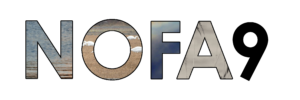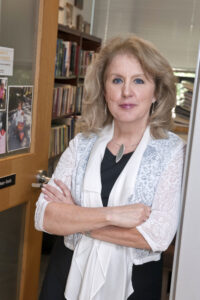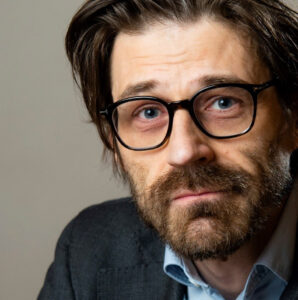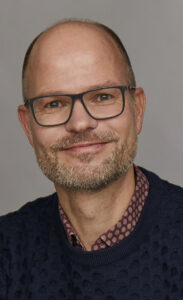Keynotes |
The Education of Subject Teachers in a Global World |
|
|
|
Abstract: As part of the late 20th century shift from an industrial to a knowledge society, there were mounting concerns in developed and developing countries about how to compete in the increasingly global economy. These concerns brought unprecedented attention to the quality of education systems, and in particular, to teachers, teaching, teacher education, and teacher quality. In many countries, these concerns were reflected in heightened, and highly critiqued, accountability initiatives and performativity measures. More recently, however, ideas have shifted somewhat in a number of European, Asia Pacific, and North America countries, away from economic concerns about global job markets and toward more humanistic concerns about a global common humanity, including justice, equality, and shared responsibility for a sustainable future. Locating her comments within the context of shifting global priorities regarding education, Professor Cochran-Smith’s keynote address will focus on four key goals of the education of subject teachers: agency, efficacy, inquiry, and equity, with all four understood as contextually- and socially-constructed processes, rather than as attributes or accomplishments of individual teachers.The keynote will consider the four goals using examples representing the many dilemmas that confront subject teachers in their classrooms, their schools, and beyond: creating positive learning environments for highly diverse groups of students; working with students with a wide range of special educational needs; offering curriculum and instruction that is multicultural, culturally-appropriate, and inclusive; and, teaching subjects to multi-lingual students whose first language is different from the language of instruction. Bio: http://www.marilyncochransmith.com/ |
Questioning the Knowledge – First Model of Learning to Contribute |
|
|
|
Abstract: Educational policy documents such as the OECD Learning Compass 2030 stresses competencies that can help students to thrive and shape a better future. The Learning Compass 2030 emphasizes for young people to be innovative, responsible, and aware. The importance of disciplinary knowledge is acknowledged, but it is understood as raw material for the new knowledge while action is emphasized.Educational policy documents seem to emphasize young people as change makers. Change makers will solve wicked problems such as global warming, mass extinction, pandemics, global food crisis, and mass migration. The OECD policy document the Future of Education and Skills 2030 sets goals and demands for education. Similarly, the European Green Deal (EU, 2019) sets strategic goals for member state governments for their policies more generally. The policy documents emphasize innovations.In the field of sustainable science, there is a critique toward disciplinary knowledge. Miller (2015) refers to wicked problems as those that can be understood very well, but lack rational solutions. He refers to what he calls a knowledge-first trap, which refers to the notion that there is certain knowledge that needs to be developed before there is rationale for action. As research is conducted, several new questions and issues emerge, meaning there is still not enough knowledge to act. Thus, the knowledge-first trap leads to a spiral of endless research in the field of sustainable science. In subject teaching, there is also a risk of a knowledge-first trap, i.e., to expect young people to acquire enough knowledge before they are asked to make a contribution. In a knowledge-first trap situation, students risk never having enough knowledge.In my talk, I will question the idea of disciplinary knowledge as raw material for making a contribution. I will connect my reflections on the topic to my recent design-based research projects, where students are engaged in contributing already from the start. The projects focused on learning Newtonian mechanics, circular economy transitions, and computational thinking. While students are making contributions, opportunities to learn disciplinary knowledge emerges. As a conclusion, I will propose that the learning of disciplinary knowledge and making a contribution are not separate, but entangled. |
| Bio: Kalle Juuti, Associate Professor of Digital Learning at Schools. University of Helsinki, Department of Education. Juuti is director of the Doctoral Programme of School, Education, Society and Culture (SEDUCE). He has a subject-teacher qualification in drama, physics, and mathematics. He has about 20 years of experience in science teacher education. Juuti’s research interests include learning in digitally enriched environments, teachers’ professional learning, sustainability education, student emotions and engagement. He is also engaged in design-based research and teacher-researcher partnerships. |
|
Subject Teaching and Bildung – An Uneasy Relationship? |
|
|
|
Abstract: The concept of Bildung is often presented as an alternative, if not an antidote, to more goal- and utility-oriented education. It is regularly contrasted with an approach to education marked by concerns for student performance and employability and aimed at fostering skills and competences. The relationship between Bildung and subject teaching is particularly complex and contested. On the one hand, since Bildung aims at forming the whole person, it seems to entail a hostility towards specialization and divisions among subjects. With its emphasis on students’ self-determination and transformative experiences, it also seems to call for an experimental, open-ended approach to education that does not sit easy with subject teaching regulated by narrow curricula and progression milestones. It may even seem to entail that education is something that takes place mainly outside the classroom. On the other hand, Bildung has been reintroduced in educational policy making with the aim of providing students with a more solid knowledge base, including canonical knowledge, and support deeper understanding and more concentrated learning. This seems to grant subject teaching a much more central role. The apparent tension cannot be resolved simply seeing it as an expression of different understandings or types of Bildung. The strength and contemporary relevance of the concept is due precisely to its ability to connect seemingly incompatible educational aims and methods. The keynote will argue for an inclusive and less ideologically laden understanding of Bildung, seeing it as a quality that can be supported by a variety of means and contexts. Subject teaching is not just compatible with, but absolutely central to Bildung. But the concern for Bildung must also influence the way subjects are taught, and so places particular demands on subject teachers and subject teacher education. |
| Bio: Søren Harnow Klausen, Professor of Philosophy, Department for the Study of Culture, University of Southern Denmark |
|






